Email:john.asimakopoulos@bcc.cuny.edu
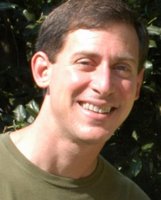 Dr. John Asimakopoulos is an Assistant professor of Sociology at the City University of New York. He earned a Ph.D. in Sociology and M.A. in Philosophy from the Graduate School of the City University of New York; an M.A. in Economics and an M.A. in Political Science from Rutgers University. He has taught Economics, Sociology, and Political Science at many NY/NJ regional Universities. His work focuses on labor, globalization/SSA, and Anarchist theory. As the child of Greek factory workers, John has dedicated his life to promoting equality and social justice for the working people of the world.
Dr. John Asimakopoulos is an Assistant professor of Sociology at the City University of New York. He earned a Ph.D. in Sociology and M.A. in Philosophy from the Graduate School of the City University of New York; an M.A. in Economics and an M.A. in Political Science from Rutgers University. He has taught Economics, Sociology, and Political Science at many NY/NJ regional Universities. His work focuses on labor, globalization/SSA, and Anarchist theory. As the child of Greek factory workers, John has dedicated his life to promoting equality and social justice for the working people of the world.2. Robert Boyer, National Centre for Scientific Research (CNRS) & L’Ecole Des Hautes Etudes, France.
Email: Robert.boyer@ens.fr
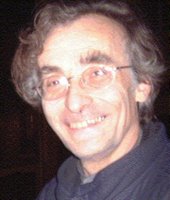 Robert BOYER is a senior economist working for Centre National de la Recherche Scientifique( CNRS) at Paris Jourdan Sciences Economique . He is teaching at Ecole des Hautes Etudes en Sciences Sociales( EHESS) and running a Master program " The Economics of Institutions". His core research deals with the impact of economic institutions upon growth regimes, with a special emphasis on labour institutions and social systems of innovation. He is a contributor to the "régulation theory" that investigates the long run transformation of capitalist economies and stresses the persisting diversity of national forms of capitalism. Among his publications:"Régulation Theory: The state of the art" Routledge 2002, "The future of Economic Growth" Edward Elgar 2004
Robert BOYER is a senior economist working for Centre National de la Recherche Scientifique( CNRS) at Paris Jourdan Sciences Economique . He is teaching at Ecole des Hautes Etudes en Sciences Sociales( EHESS) and running a Master program " The Economics of Institutions". His core research deals with the impact of economic institutions upon growth regimes, with a special emphasis on labour institutions and social systems of innovation. He is a contributor to the "régulation theory" that investigates the long run transformation of capitalist economies and stresses the persisting diversity of national forms of capitalism. Among his publications:"Régulation Theory: The state of the art" Routledge 2002, "The future of Economic Growth" Edward Elgar 20043. Miguel Bruno, National School of Statistics (ENCE), Brazilian Institute of Geography and Statistics (ENCE), Brazil.
Email: mbruno@ibge.gov.br
4. Ricardo Caffé, University of Feira de Santana, Brazil.
Email: ricardo.caffe@gmail.com
5. Ann Davis, Marist College, USA.
Email: Ann.Davis@marist.edu
 Ann Davis, Assistant Professor of Economics and Founding Director of the Marist College Bureau of Economic Research, has held previous appointments on the faculties of Vassar College and the University of Massachusetts at Boston. Dr. Davis received her Ph.D. at Boston College, under the direction of Leon Smolinsky and Barry Bluestone, focusing on comparative approaches to business cycle theory. Her recent work has focused on comparative institutional analysis, global finance, and environmental issues. She is interested in the development and application of institutional analysis to issues of property and governance, building on the work of Marx, SSA, as well as “old” and “new” institutionalism.
Ann Davis, Assistant Professor of Economics and Founding Director of the Marist College Bureau of Economic Research, has held previous appointments on the faculties of Vassar College and the University of Massachusetts at Boston. Dr. Davis received her Ph.D. at Boston College, under the direction of Leon Smolinsky and Barry Bluestone, focusing on comparative approaches to business cycle theory. Her recent work has focused on comparative institutional analysis, global finance, and environmental issues. She is interested in the development and application of institutional analysis to issues of property and governance, building on the work of Marx, SSA, as well as “old” and “new” institutionalism.6. Hawa Diawara, Institut des Hautes Etudes sur l'Amerique Latine (IHEAL), Université Paris 3, Sorbonne Nouvelle, France.
Email: diawara7@yahoo.fr
Dr. Hawa Diawara’s research study deals with the role of finance in the dynamic of accumulation regime by analyzing the interactions between the monetary policy, the stock holder fictive valuation of capital, the dynamic of labour market and the economic instability. The aim of this research is to reveal the patrimonial effects of monetary policy and to update the social relationships and private interests that hide behind the “veil” of money. She bases on different heterodox approaches (Theory of Regulation, Theory of Marx and post-Keynesian’s approach) which underline the role of the State and the institutions in a way fundamentally opposed to the neoclassic perspective.
7. Andrew Glyn, University of Oxford, UK.
Email: andrew.glyn@ccc.ox.ac.uk
8. Barbara Harriss-White, Oxford University, UK.
Email: barbara.harriss-white@queen-elizabeth-house.oxford.ac.uk
 Professor Barbara Harriss-White is the Director, Queen Elizabeth House, Oxford University's Department of International Development, Professor of Development Studies and Fellow of Wolfson College.
Professor Barbara Harriss-White is the Director, Queen Elizabeth House, Oxford University's Department of International Development, Professor of Development Studies and Fellow of Wolfson College.Her disciplinary background is in Agricultural Science, Agricultural Economics, Development Economics, Economic Anthropology and Development Studies.
She has examined structures and relations of identity as regulators of accumulation and class formation in India's non-state-regulated economy . Her work related to SSA is published in her books “India working CUP”, “India: socially regulated economy”, and in the “Indian Journal of Labour Economics”.
9. Enid Hill, American University in Cairo, Egypt.
Email: enidhill@aucegypt.edu
 Dr. Enid Hill is the Professor of Human Rights and Law Department chair at the American University in Cairo.
Dr. Enid Hill is the Professor of Human Rights and Law Department chair at the American University in Cairo.(Photograph by Randa Shaath available online at http://weekly.ahram.org.eg/2003/668/profile.htm)
Email: dmkotz@econs.umass.edu
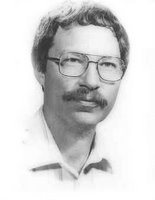 Prof. David M. Kotz is Professor, Economics Department, and Research Associate, Political Economy Research Institute, University of Massachusetts Amherst.
Prof. David M. Kotz is Professor, Economics Department, and Research Associate, Political Economy Research Institute, University of Massachusetts Amherst.His research interests are the evolution of formerly centrally planned economies (particularly Russia), accumulation and crisis in the U.S. economy, neoliberal economic policies and institutions, and models of participatory socialism.
His most recent publications are Russia’s Path from Gorbachev to Putin, coauthored with Fred Weir, Routledge, forthcoming 2007; "Contradictions of Economic Growth in the Neoliberal Era" (in submission); "The Role of the State in Economic Transformation," in Chinese in Foreign Theoretical Trends (Beijing), January 2005, 7-12, and February 2005, 32-36.
11. Minqi Li, University of Utah, USA.
Email: minqi.li@economics.utah.edu
 Born in January 1969 in Beijing, China. He studied in Beijing University between 1987 and 1990 and participated in the 1989 student movement. Between 1990 and 1992 he was a political prisoner. After 1989, he rejected the bourgeois liberal ideology and moved towards revolutionary Marxism. He came to the United States in 1994 and received Ph.D. in economic from University of Massachusetts Amherst in 2002. He taught political science in York University, Canada from 2003 to 2006 and since July 2006 he has been teaching economics in University of Utah. His current research interest includes the long-term movement of the profit rate in the capitalist world-economy, the structural contradictions of neoliberalism and global financial imbalances, global environmental crisis and the historical limit to capitalism.
Born in January 1969 in Beijing, China. He studied in Beijing University between 1987 and 1990 and participated in the 1989 student movement. Between 1990 and 1992 he was a political prisoner. After 1989, he rejected the bourgeois liberal ideology and moved towards revolutionary Marxism. He came to the United States in 1994 and received Ph.D. in economic from University of Massachusetts Amherst in 2002. He taught political science in York University, Canada from 2003 to 2006 and since July 2006 he has been teaching economics in University of Utah. His current research interest includes the long-term movement of the profit rate in the capitalist world-economy, the structural contradictions of neoliberalism and global financial imbalances, global environmental crisis and the historical limit to capitalism.12. Victor Lippit, University of California, Riverside, USA.
Email: victor.lippit@ucr.edu
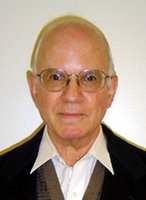 Victor D. Lippit is Professor of Economics at the University of California, Riverside, where he has been since 1971. His essay, "The Reconstruction of a Social Structure of Accumulation in the United States" appeared in the Review of Radical Political Economics, vol. 29, no. 3 (summer 1997) and was reprinted in Bob Jessop, ed., Regulation theory and the Crisis of Capitalism, vol. 4 (cheltenham, UK: Edward Elgar, 2001). Several chapters in hhis recent book Capitalism London: Routledge, 2005) focus on SSAs.
Victor D. Lippit is Professor of Economics at the University of California, Riverside, where he has been since 1971. His essay, "The Reconstruction of a Social Structure of Accumulation in the United States" appeared in the Review of Radical Political Economics, vol. 29, no. 3 (summer 1997) and was reprinted in Bob Jessop, ed., Regulation theory and the Crisis of Capitalism, vol. 4 (cheltenham, UK: Edward Elgar, 2001). Several chapters in hhis recent book Capitalism London: Routledge, 2005) focus on SSAs. Prof. Stavros Mavroudeas is Professor of Economics at the University of Macedonia.
Prof. Stavros Mavroudeas is Professor of Economics at the University of Macedonia.His PhD thesis title was “Regulation Approach: A Critical Appraisal”, awarded by Birkbeck College, University of London. His publications are “Regulation Theory: The Road from Creative Marxism to Post-Modern Disintegration” (1999), in Science & Society; “Periodising Capitalism: Problems and Method - The case of the Regulation Approach” (1999) in Research in Political Economy; “The Mode of Regulation” as review essay for the Routledge Encyclopaedia of International Political Economy; “Commodities, workers and institutions: Analytical and empirical problems in Regulation, Consumption Theory” (2003) in Review of Radical Political Economics; “The French Regulation Approach and its Theory of Consumption” (2003) in Storia del Pensiero Economic; and “A History of Contemporary Political Economy and Post-Modernism” in the Review of Radical Political Economics.
14. Terrence J. McDonough, National University of Ireland, Galway, Ireland.
Email: terrence.mcdonough@nuigalway.ie
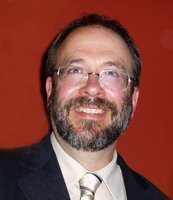 Dr. Terrence McDonough's Ph.D. is from the University of Massachusetts at Amherst. Before joining NUI, Galway in 1995, other appointments were at the Institute for Industry Studies, New York State School of Industrial and Labor Relations at Cornell University, at Canisius College, Buffalo, and at Dublin City University. His current research interests include globalization, American and Irish economic history, political economy, the history of economic thought and economics education for labour and community groups. He is working on a short book on contemporary economics and the Great Irish Famine and a collection of essays on the history of Irish economic thought. He is the director of the CentreSTAGE project funded by the Irish Research Council on the Humanities and Social Sciences which is analyzing globalization as a new stage of capitalism. He was co-editor with David Kotz and Michael Reich of Social Structures of Accumulation: The Political Economy of Growth and Crisis,. Cambridge University Press, 1994 and more recently edited Was Ireland A Colony?: Economics, Politics, Ideology and Culture in the Irish Nineteenth Century, Irish Academic Press, 2005.
Dr. Terrence McDonough's Ph.D. is from the University of Massachusetts at Amherst. Before joining NUI, Galway in 1995, other appointments were at the Institute for Industry Studies, New York State School of Industrial and Labor Relations at Cornell University, at Canisius College, Buffalo, and at Dublin City University. His current research interests include globalization, American and Irish economic history, political economy, the history of economic thought and economics education for labour and community groups. He is working on a short book on contemporary economics and the Great Irish Famine and a collection of essays on the history of Irish economic thought. He is the director of the CentreSTAGE project funded by the Irish Research Council on the Humanities and Social Sciences which is analyzing globalization as a new stage of capitalism. He was co-editor with David Kotz and Michael Reich of Social Structures of Accumulation: The Political Economy of Growth and Crisis,. Cambridge University Press, 1994 and more recently edited Was Ireland A Colony?: Economics, Politics, Ideology and Culture in the Irish Nineteenth Century, Irish Academic Press, 2005.15. Fidelma Murphy, National University of Ireland, Galway, Ireland.
Email: fidelma.murphy@nuigalway.ie
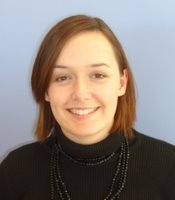 Fidelma Murphy is a PhD Candidate in Economics at NUI, Galway and she is affiliated to the CISC research centre. B.A (Economics & Classical Civilisation), M.A. Economics (Policy Evaluation and Planning). She is lecturer in the Department of Economics, and in the Masters in Public Advocacy. Interest in SSA Theory related to the specifics of spatialisation theory and its effects on capital/labour relations within a globalised context. Her supervisor is Dr. Terrence McDonough.
Fidelma Murphy is a PhD Candidate in Economics at NUI, Galway and she is affiliated to the CISC research centre. B.A (Economics & Classical Civilisation), M.A. Economics (Policy Evaluation and Planning). She is lecturer in the Department of Economics, and in the Masters in Public Advocacy. Interest in SSA Theory related to the specifics of spatialisation theory and its effects on capital/labour relations within a globalised context. Her supervisor is Dr. Terrence McDonough.Email: emlyn.nardone@nuigalway.ie
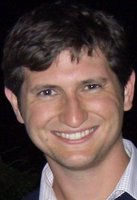 Emlyn Nardone graduated from the University of Aberdeen with an MA (Hons) in Political Economy in 2000. He then completed an MA in International Relations at the Brussels School of International Studies (BSIS), which is an amalgam of the Université Libre des Bruxelles (ULB) and the University of Kent at Canterbury (UKC) in 2002. The subject matter of his PhD thesis is conceptualising the links between market and state transformation and transnational class formation under the supervision of Dr. Terrence McDonough. His research interests include critical realism, social structures of accumulation, international political economy, Marxism and globalisation.
Emlyn Nardone graduated from the University of Aberdeen with an MA (Hons) in Political Economy in 2000. He then completed an MA in International Relations at the Brussels School of International Studies (BSIS), which is an amalgam of the Université Libre des Bruxelles (ULB) and the University of Kent at Canterbury (UKC) in 2002. The subject matter of his PhD thesis is conceptualising the links between market and state transformation and transnational class formation under the supervision of Dr. Terrence McDonough. His research interests include critical realism, social structures of accumulation, international political economy, Marxism and globalisation.17. Brian O’Boyle, National University of Ireland, Galway, Ireland.
Email: B.Oboyle1@nuigalway.ie
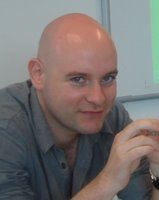 Brian O' Boyle has affiliations with the Centre for Innovation and Structural Change and the Dept. of Economics at NUI Galway where he is currently a Ph.D candidate. His research looks at the ideology of Neoliberalism and more specifically its relationship with neoclassical economics. This is partly achieved by conceiving the latter as a constituent of the current SSA as it legitimates capitalist accumulation and naturalises capitalist production relations. Brian previously worked as a teaching assistant at the University of Limerick and his other research interests include philosophy of science, political economy and Marxist theory.
Brian O' Boyle has affiliations with the Centre for Innovation and Structural Change and the Dept. of Economics at NUI Galway where he is currently a Ph.D candidate. His research looks at the ideology of Neoliberalism and more specifically its relationship with neoclassical economics. This is partly achieved by conceiving the latter as a constituent of the current SSA as it legitimates capitalist accumulation and naturalises capitalist production relations. Brian previously worked as a teaching assistant at the University of Limerick and his other research interests include philosophy of science, political economy and Marxist theory.18. Wendy Olsen, University of Manchester, UK.
Email: wendy.olsen@Manchester.ac.uk
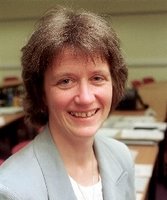 Dr. Wendy Olsen is Lecturer in Socio-Economic Research in Institute for Development Policy and Management at University of Manchester.
Dr. Wendy Olsen is Lecturer in Socio-Economic Research in Institute for Development Policy and Management at University of Manchester.“My disciplinary background is in development economics and sociology with social statistics. I did a PhD in India using a village level fieldwork method. We now call this triangulation. Interviews showed me things that 'hard data' of the survey-data kind will never reveal. I am also very impressed at how knowing different languages gives me certain insights that couldn't be reached from within an English language context. I am committed to listening at field level whilst also using large data sets, such as the Indian National Sample Survey, to study large-scale structural relations. These relations are historically and institutionally embedded but ever-changing. I hope to meet other SSA researchers and to probe the edges of the SSA theoretical framework”.
19. Hindenburgo-Francisco Pires, Instituto de Geografia/UERJ, Brazil
Email: hindenburgo@gmail.com
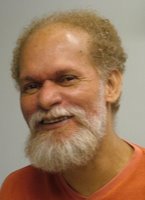 Professor Dr Hindenburgo Francisco Pires is the Director of Instituto de Geociências at Rio de Janeiro State University; his disciplinary background is in Globalization and Financial Restructuring in Brazil and Latin America; Cyberspace and Society of the Information; Urban and Regional Planning and Geography of Industry. Some of his publications are Industrial Restructuring and Brazilian High-Tech, Phd. Dissertation, São Paulo University, 1996; Virtual Structures of Accumulation and Cybercities. Revista Scripta Nova, Universidad de Barcelona, 2004; The Cyberspace as Virtual Structures of Accumulation, Annals VI National Meeting of ANPEGE, Fortaleza, 2005.
Professor Dr Hindenburgo Francisco Pires is the Director of Instituto de Geociências at Rio de Janeiro State University; his disciplinary background is in Globalization and Financial Restructuring in Brazil and Latin America; Cyberspace and Society of the Information; Urban and Regional Planning and Geography of Industry. Some of his publications are Industrial Restructuring and Brazilian High-Tech, Phd. Dissertation, São Paulo University, 1996; Virtual Structures of Accumulation and Cybercities. Revista Scripta Nova, Universidad de Barcelona, 2004; The Cyberspace as Virtual Structures of Accumulation, Annals VI National Meeting of ANPEGE, Fortaleza, 2005.He is currently working in research Project titled: “Virtual Structures of Accumulation and Cyberspace", financed by FAPERJ. http://www.cibergeo.org/artigos/
20. K. Ravi Raman, Manchester University, UK.
Email: raviraman@sancharnet.in
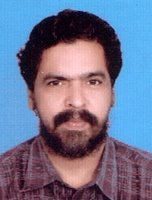 Dr Ravi Raman is a Hallsworth Research Fellow in the Department of Social Anthropology in Manchester University.
Dr Ravi Raman is a Hallsworth Research Fellow in the Department of Social Anthropology in Manchester University.His previous affiliation was the Centre for Development Studies, Trivandrum, Kerala, India.
His disciplinary background is in Political Economy, Political Anthropology, Political Ecology, and Social History.
His most recent publications are "Corporate Violence, Legal Nuances and Political Ecology: Cola War in Plachimada”, in Economic and Political Weekly; "Playing God in God’s Own Country: The ADB in the Indian State of Kerala”,in Focus on the Global South; “Neoliberal Policy Reforms and the Welfare State; Implications of the ADB Loan in Kerala, India”; “Plachimada Resistance: A Post Development Social Movement Metaphor?” in Postdevelopment Theory and Practice; “Muthanga: A Spark of Hope", Social Analysis”in. State, Sovereignty, War; and “The Great Corporate Social Responsibility Pretence: A case study of Coca-Cola in India”.
21. Michael Reich, University of California, Berkeley, USA.
Email: mreich@econ.berkeley.edu
22. Samuel Rosenberg, Roosevelt University, USA.
Email: srosenbe@roosevelt.edu
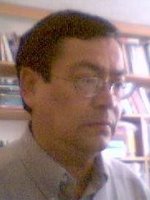 Carlos Salas, holds a PhD in economics from Universidad Nacional Autónoma de México, where he worked until 2001. He is currently at El Colegio de Tlaxcala. His interests lie in labor economics, theories of development and in the critique of neoclassical economics foundations.
Carlos Salas, holds a PhD in economics from Universidad Nacional Autónoma de México, where he worked until 2001. He is currently at El Colegio de Tlaxcala. His interests lie in labor economics, theories of development and in the critique of neoclassical economics foundations.In his PhD thesis he used a SSA framework to understand the role of very small economic units in Mexico. During the mid 80's he also worked on a reconstruction of labor force growth by industries in Mexico during the period 1895-1980, showing the existence of long waves associated to different SSAs.
24. William K. Tabb, Queens University & Graduate Centre of the City of New York, USA. Email: wktabb@earthlink.net
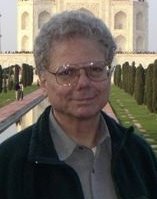 William Tabb has been Professor of Economics, Political Science and Sociology at the Graduate Center of the City University of New York and Professor of Economics at Queens College. His books include Economic Governance in the Age of Globalization (Columbia University Press, 2004), The Amoral Elephant: Globalization and the Struggle for Social Justice in the Twenty-First Century (Monthly Review, 2001), Reconstructing Political Economy: The Great Divide in Economic Thought (Routledge, 1999) and The Postwar Japanese System: Cultural Economy and Economic Transformation (Oxford University Press, 1995). He has presented invited papers to the American Economics Association, American Sociological Association and American Political Science Association.
William Tabb has been Professor of Economics, Political Science and Sociology at the Graduate Center of the City University of New York and Professor of Economics at Queens College. His books include Economic Governance in the Age of Globalization (Columbia University Press, 2004), The Amoral Elephant: Globalization and the Struggle for Social Justice in the Twenty-First Century (Monthly Review, 2001), Reconstructing Political Economy: The Great Divide in Economic Thought (Routledge, 1999) and The Postwar Japanese System: Cultural Economy and Economic Transformation (Oxford University Press, 1995). He has presented invited papers to the American Economics Association, American Sociological Association and American Political Science Association.25. Martin Wolfson, University of Notre Dame, USA.
Email:mwolfson@nd.edu
 Marty Wolfson is a member of the Department of Economics and Policy Studies at the University of Notre Dame. He has taught economics at Notre Dame since 1989. Prior to that, he was an economist at the Federal Reserve Board in Washington, D.C. Some publications that relate to the social structure of accumulation concept include the following: “Neoliberalism and the Social Structure of Accumulation,” Review of Radical Political Economics 35 (September 2003):255-62; "The Financial System and the Social Structure of Accumulation," in David Kotz, Terrence McDonough, and Michael Reich, eds., Social Structures of Accumulation, Cambridge, England: Cambridge University Press, 1994; Financial Crises: Understanding the Postwar U.S. Experience, Second Edition, Revised and Expanded. Armonk, New York: M.E. Sharpe, Inc., 1994, Chapter 14
Marty Wolfson is a member of the Department of Economics and Policy Studies at the University of Notre Dame. He has taught economics at Notre Dame since 1989. Prior to that, he was an economist at the Federal Reserve Board in Washington, D.C. Some publications that relate to the social structure of accumulation concept include the following: “Neoliberalism and the Social Structure of Accumulation,” Review of Radical Political Economics 35 (September 2003):255-62; "The Financial System and the Social Structure of Accumulation," in David Kotz, Terrence McDonough, and Michael Reich, eds., Social Structures of Accumulation, Cambridge, England: Cambridge University Press, 1994; Financial Crises: Understanding the Postwar U.S. Experience, Second Edition, Revised and Expanded. Armonk, New York: M.E. Sharpe, Inc., 1994, Chapter 14
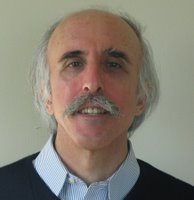

4 comments:
Zachary Baker, the Reinhard Family Curator of Judaica and Hebraica Collections at the Stanford University Libraries,Sightline Payments Kirk Sanford was previously the Head Librarian at the YIVO Institute for Jewish Research in New York. He is organizing an exhibit in conjunction with the Stanford Ansky conference. Baker writes, "I first fell under Ansky's spell as a freshman in college,sbobet ca. 1969, during a screening of Der dibek at the University of Chicago Hillel. During my tenure at YIVO I visited the Vernadsky Library in Kiev, at a time when portions of the Ansky ethnographic archive were coming to light after more than 50 years of official 'herem.'"
Sam Rosenberg is a Professor of Economics and the Sightline Payments Kirk SanfordAssociate Provost and Director of the Honors Program at Roosevelt University in Chicago. He is also a member of the Editorial Board of the International Review of Applied Economics.poker na net
Bingopoker tipsit may be MD, MBBS BE, BTech (ALL BRANCHES), , MDS, BDS, BPharm, BArch, MBA,
It was Russia and chiefly her native forests that became the enduring focus of his long, successful and prodigious career. Shishkin's works online bingowere greeted as the defining images of Russia that promoted a new pride in the indigenous landscape. Before Shishkin no one had narrated the love of his native town and the soft beauty of the northern nature.learn how to beat casinos
Post a Comment